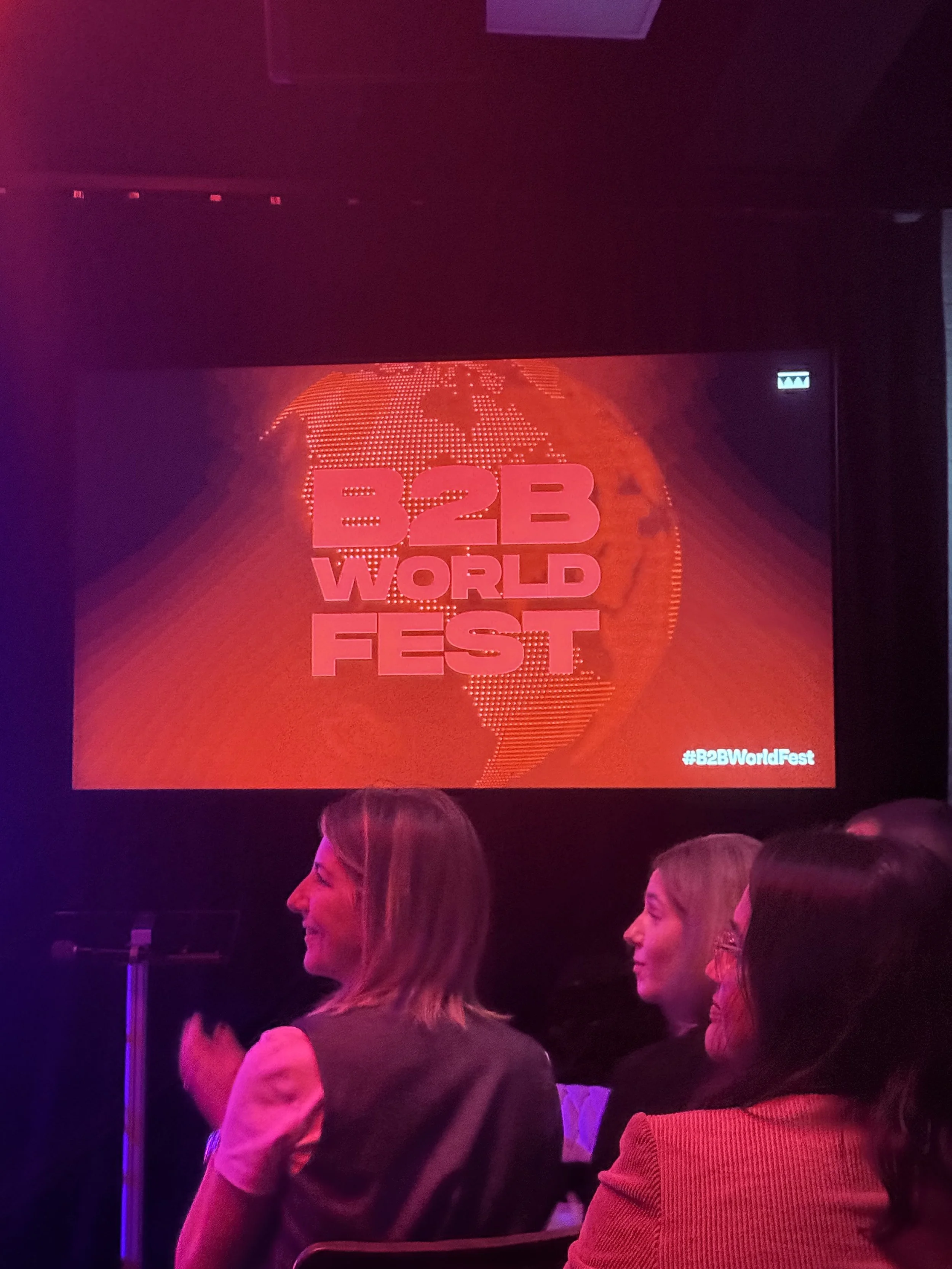If you watch enough sport (especially Formula 1) or cable TV, you’ll see an extraordinary number of B2B tech businesses advertising or sponsoring.
So why are B2B brands increasingly investing in major sports partnerships?
That was the topic of a fascinating conversation at The Drum's B2B World Fest, featuring Sarah Dawson (Wasserman), Priyanka Mehra (TCS) and Karen Feldman (Iron Mountain).
A recurring theme was that B2B brands don’t actually sell to “businesses” - they sell to humans. (Another case for humanising, Paul Cash!)
Sport isn’t just something we watch. It’s something we feel. And when a brand can plug into that emotion - authentically, consistently and with purpose - something powerful happens.
Priyanka from TCS described a challenge familiar to most complex enterprise brands: technology can sound, well… complex. Heavy. Abstract. Hard to feel.
So TCS turned to a platform built entirely on human emotion: the marathon.
TCS now partners with 14 global marathons, reinforcing at each that training and race day aren’t fleeting events, they’re year-long personal journeys full of discipline, resilience and shared pride.
Everyone knows someone who has run a marathon. Everybody knows what that story means. That’s the connection.
And TCS are not just sponsoring marathons - they’re using them as live innovation environments.
Take their Digital Twin project, created with elite runner Des Linden. TCS built a digital model of her heart, allowing her to analyse performance, adjust for changing race conditions and optimise in real time. A world-class example of taking enterprise innovation and making it both tangible and inspiring! And they’re scaling it. From one athlete → to many → to everyday runners → to other industries entirely.
And Iron Mountain, a 75-year-old business known for information storage, is using its new partnership with McLaren F1 to shift perception.
They’re not just powering storage. They’re powering history, access and storytelling using AI-driven content discovery to unlock decades of unseen racing archives.
It’s heritage meets data innovation, and it is deeply emotive.
𝗦𝗼 𝘄𝗵𝘆 𝘀𝗽𝗼𝗿𝘁, 𝗮𝗻𝗱 𝘄𝗵𝘆 𝗻𝗼𝘄?
Three signals came through loud and clear:
🎯 𝗘𝗺𝗼𝘁𝗶𝗼𝗻𝗮𝗹 𝗿𝗲𝘀𝗼𝗻𝗮𝗻𝗰𝗲: Sport creates memory, belonging and identity.
🎯 𝗚𝗹𝗼𝗯𝗮𝗹 𝗿𝗲𝗮𝗰𝗵 & 𝗿𝗲𝗽𝗲𝗮𝘁 𝗶𝗻𝘁𝗲𝗿𝗮𝗰𝘁𝗶𝗼𝗻: Formula 1, marathons and sports leagues provide year-round engagement moments, not just events.
🎯 𝗔 𝗹𝗶𝘃𝗶𝗻𝗴 𝘁𝗲𝘀𝘁𝗯𝗲𝗱 𝗳𝗼𝗿 𝗶𝗻𝗻𝗼𝘃𝗮𝘁𝗶𝗼𝗻: Sport becomes a proving ground for technology, data and new experiences.
I guess my takeaway is that the brands winning in sports aren’t chasing visibility. They’re building meaning.
Sport isn’t a channel. It’s a human translation layer.
And for B2B brands trying to stand out in a world of feature lists and complexity? That translation layer might just be the advantage.
